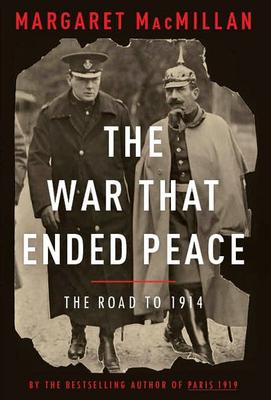 With the coming next year of the 100th anniversary of the Great War (1914), there are already a number of books marking this date. One of the best is Margaret MacMillan’s The War That Ended Peace.
With the coming next year of the 100th anniversary of the Great War (1914), there are already a number of books marking this date. One of the best is Margaret MacMillan’s The War That Ended Peace.
MacMillan is a Canadian who studied at the University of Toronto before getting her PhD at Oxford. She is now a professor of international history at Oxford, where she is also the warden of St. Anthony’s College. She has written a number of prize-winning books, including Paris 1919: Six Months that Changed the World. Her skill in both writing and teaching makes her a brilliant storyteller. The result is popular history with a solid backing of research.
This new one gives a picture of Europe in the century after the end of the Napoleonic Wars when peace settled across the countries and for some time they enjoyed a Concert of Europe and managed to pull back from military force in 1905, 1908, 1911, 1912 and 1913. Eventually the tug of shifting alliances, colonialism, complex personalities and rivalries strained relations. The assassination of Archduke Franz Ferdinand, heir to the throne of Austria-Hungary, killed the one person close to the Emperor who counseled peace and so war broke out.
By this time, MacMillan has given us a close picture of the people involved. Winston Churchill becomes First Lord of the Admiralty in 1913. She also notes the intensity of the arms race which, between 1908 and 1914, went up by 50%, with the exception of Italy.
This is a heavy book to hold – 700 pages – but not to read.
Review by Anne McDougall